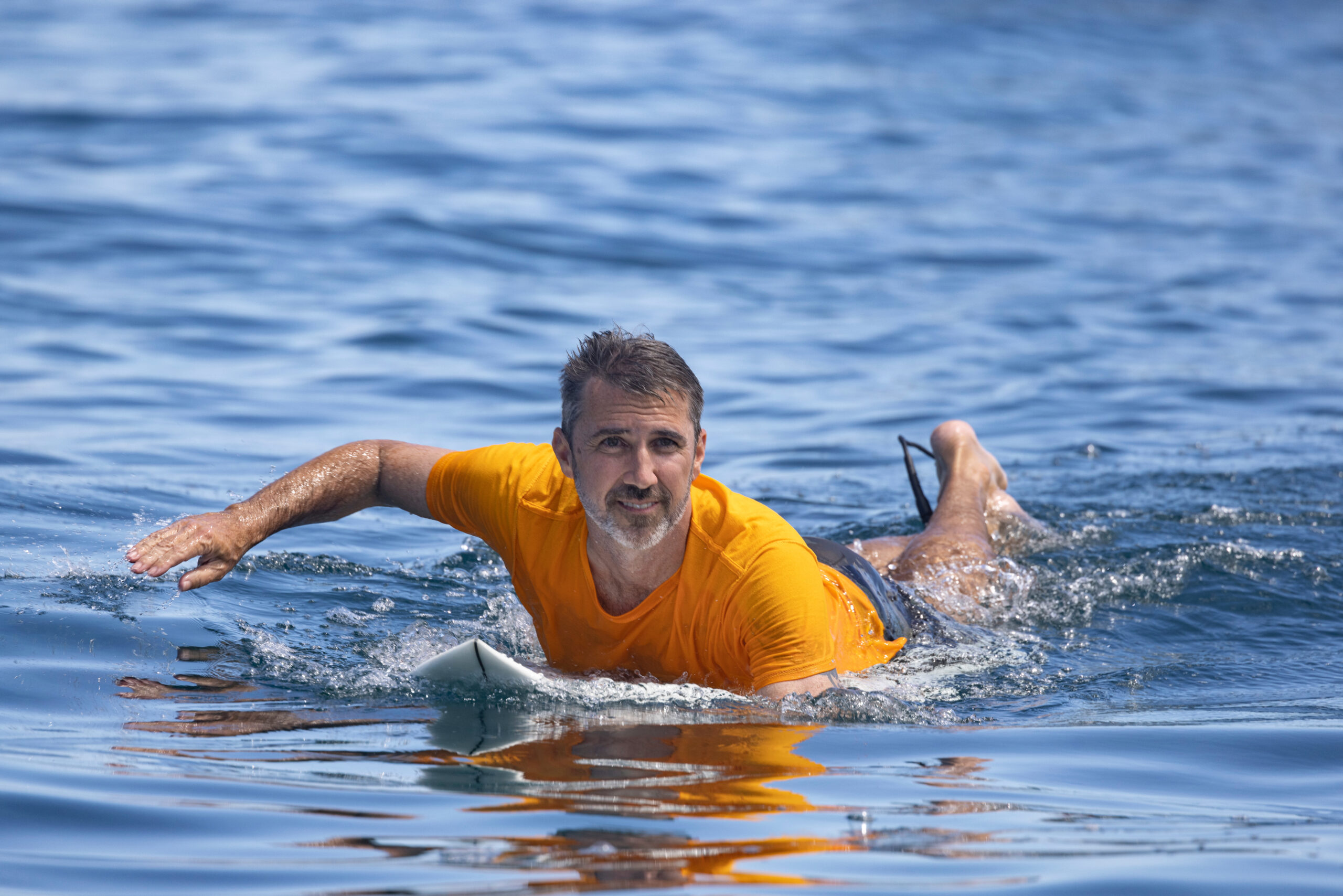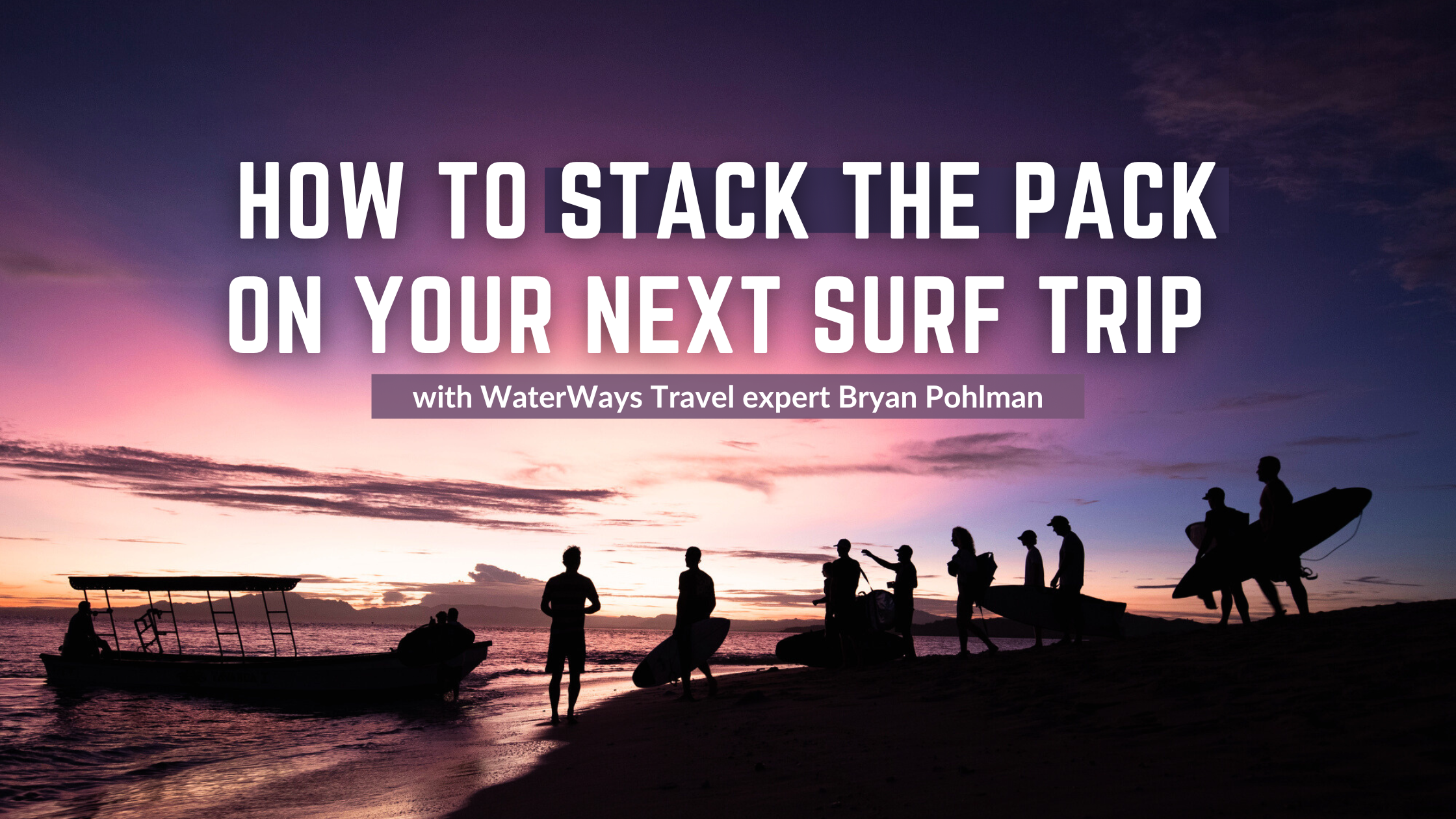
The questions you should ask and the answers you should know from our WaterWays surf travel expert Bryan Pohlman.
Bryan Pohlman has spent more than 25 years making surf trips happen. “BP” started working with WaterWays in 2013, and our Tavarua Island Reservation guru might have a claim for being responsible for getting more surfers barrelled than any other El Segundo-residing, natural footer on the planet. He also manages several “research” trips each year to keep his eye on.
So, when it comes to knowing what makes a good trip go tremendously or a good trip turns bad, few have done the hours at the computer coalface or behind the Cloudbreak curtain as Bryan. At the end of 2024’s epic three-week surf bender in California, we picked his brain on what surfers can do to maximize their chances of having an epic surf trip in 2025.
What are the key questions a customer should ask before they plan a surf trip?
I’ll flip it with the first two questions I always ask customers: What time of year can you travel, and what type of waves are you looking for? If I can get those two key answers, the rest usually falls into place.
Expectations are usually high on any surfer’s trip away. How do you manage these expectations?
Well, my personal surf trip motto is, “Expect the best, be prepared for the worst, and the trip will probably fall somewhere in between those two extremes.”
What are common mistakes clients make after booking their surf trip?
Very few clients have regretted bringing a step-up board, and plenty have. I always advise getting a step-up on an in-season surf trip. There is no excuse for being unprepared when you’ve spent your hard-earned money to travel and surf quality waves.
Any other key pieces of advice?
Travel insurance is essential. I always recommend a comprehensive policy, but every surf traveler should buy a medical evacuation policy at the very least. If you lose a few thousand bucks on a canceled trip, that’s one thing, but nobody wants a $150K evacuation bill.” Get Global Rescue and Travel Insurance or basic Travel Insurance with us.
That’s an oversized ticket item. What about the more minor details?
It’s all about being prepared. Check your passport’s expiry date before you even book, as I’ve seen some very stressed surfers dealing with that speed hump. Small details like buying a new leash, leash string, and packing extra fins and fin keys can be overlooked, but they are essential. They don’t cost much cash but can save so much drama.

Is there any other prep that can be done before the trip?
Get in shape. Having a surf trip on the calendar is excellent motivation to get in the gym, swim laps in the pool, or dust off the paddleboard to be sure you can take advantage of the time off work in quality surf. Most of us have a limited window of time to surf each day and might not be in shape to surf 4 to 6 hours a day every day for a few days in a row. You’ve worked hard to take the time off, so you want to make the most of it!
What do customers who tend to have good surf trips have in common?
Experienced travelers are good at pacing themselves. If they see a solid swell coming in the back half of a trip, they don’t over-surf the first few days. It’s not easy to be patient, but it can pay off. On the other hand, if it’s pumping early on, they max their surf time, as most swells don’t last more than a couple of days.
And what about mistakes made on the trip itself?
I mentioned it in the prep, but the most common issue might be surfers not being in paddle shape. That means they can struggle to catch the set waves and copping sets on the head by being out of position. That makes them more tired, and it’s a cycle that can wreck a trip. Whether we want to admit it or not, we all have some ego about our surfing, and when we get that chance to shine, it can be humbling, humiliating, or downright depressing to know you blew it. Being in shape can stop that.
What makes a good surf trip great…
Very few pre-planned trips get the swell of the season at any given destination. However, as surfers, we know that the waves make a trip extraordinary. That’s beyond anyone’s control. However, you can stack the pack in your favor. Choose a time of year with the most favorable wind and swell combo. Loads of swell are pointless with the wrong winds. Another cheat code is to get to know the locals. You can learn about the lineup from the locals, as well as their culture, food, and non-surf action that is off the beaten path. That makes surf travel different and, in my opinion, better than other kinds of trips. You do have the chance to interact with local surfers and have experiences most tourists never get.
Bryan’s 10 Point Check List For The Ultimate Surf Trip
- Check your passport’s expiry date
- Lock down your availability and the type of waves you want to surf.
- Manage your expectations
- Buy travel insurance (especially a medical evacuation policy)
- Get paddle fit
- Upgrade leashes, fin keys, and fins (and keep old ones as spares)
- Take a step-up board
- Pace yourself (unless it’s pumping, then froth hard)
- Learn from the local
- Stay positive (even if there aren’t waves); it beats working.
